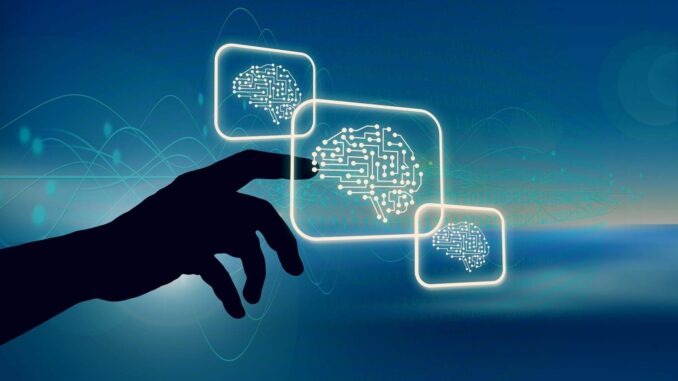
Indeed, the future of AI holds immense potential across various fields and aspects of daily life.
Here are some key areas where AI is expected to make significant impacts, along with the opportunities and challenges that come with it:








### 1. **Healthcare**
– **Personalized Medicine:** AI can analyze large datasets of genetic information to tailor treatments to individual patients, improving outcomes and reducing side effects.
– **Predictive Analytics:** By predicting disease outbreaks or patient deterioration, AI can enhance patient care and resource allocation in healthcare systems.
– **Drug Discovery:** AI can speed up the process of discovering new drugs by identifying potential compounds and predicting their effectiveness.
### 2. **Business and Industry**
– **Automation and Efficiency:** AI can optimize supply chains, streamline manufacturing processes, and enhance customer service through automation, leading to significant cost savings and increased efficiency.
– **Data-Driven Decision Making:** AI-driven analytics can provide deeper insights into market trends and customer preferences, enabling businesses to make more informed decisions.
### 3. **Education**
– **Personalized Learning:** AI can adapt educational content to fit the learning pace and style of individual students, improving engagement and outcomes.
– **Administrative Efficiency:** AI tools can automate administrative tasks, allowing educators to focus more on teaching and less on paperwork.
### 4. **Transportation**
– **Autonomous Vehicles:** Self-driving cars and delivery drones have the potential to reduce accidents, optimize routes, and revolutionize logistical operations.
– **Smart Transportation Systems:** AI can improve traffic management, reducing congestion and pollution through real-time data analysis and dynamic routing.
### 5. **Environment and Sustainability**
– **Climate Modeling:** AI can enhance models for understanding climate change, helping to create effective mitigation strategies.
– **Resource Management:** AI can optimize energy usage and promote sustainable agriculture practices, contributing to overall environmental conservation efforts.
### 6. **Finance**
– **Fraud Detection and Risk Management:** AI systems can identify unusual patterns and flag potential fraudulent activity in real-time, improving security measures in banking.
– **Algorithmic Trading:** AI can analyze vast amounts of market data to make trading decisions, potentially leading to higher profits for investors.
### 7. **Social Impact**
– **Accessibility:** AI technologies can improve accessibility for individuals with disabilities, providing speech recognition, visual aids, and personalized assistance.
– **Crisis Response:** AI can be deployed in disaster response to analyze data and optimize resource allocation during emergencies, improving rescue operations.
### 8. **Creativity and Content Creation**
– **AI-Generated Content:** AI tools can assist in generating music, art, literature, and other forms of creative expression, opening new avenues for artistic collaboration.
– **Enhanced Entertainment:** AI can personalize entertainment experiences, offering customized recommendations based on user preferences.
### Challenges and Considerations
Despite the promising future, several challenges need to be addressed:
– **Ethics and Accountability:** As AI systems become more integrated into daily life, ensuring that they are developed and used ethically is critical. This includes issues of bias, transparency, and accountability.
– **Job Displacement:** Automation may lead to job losses in certain sectors, necessitating workforce retraining and the creation of new job opportunities in AI-related fields.
– **Security Risks:** As AI systems become more ubiquitous, they may also become targets for malicious attacks. Ensuring the security of AI applications will be paramount.
– **Data Privacy:** The reliance on vast amounts of data raises concerns about individual privacy and the ethical use of personal information.
### Conclusion
The future of AI is both exciting and complex. It has the potential to transform industries, improve quality of life, and address some of the world’s most pressing challenges. However, to harness this potential effectively, stakeholders—including technologists, policymakers, businesses, and society—must work together to navigate the ethical, social, and economic implications of AI advancements. By fostering responsible innovation, we can ensure that AI serves the greater good and benefits humanity as a whole.

Leave a Reply